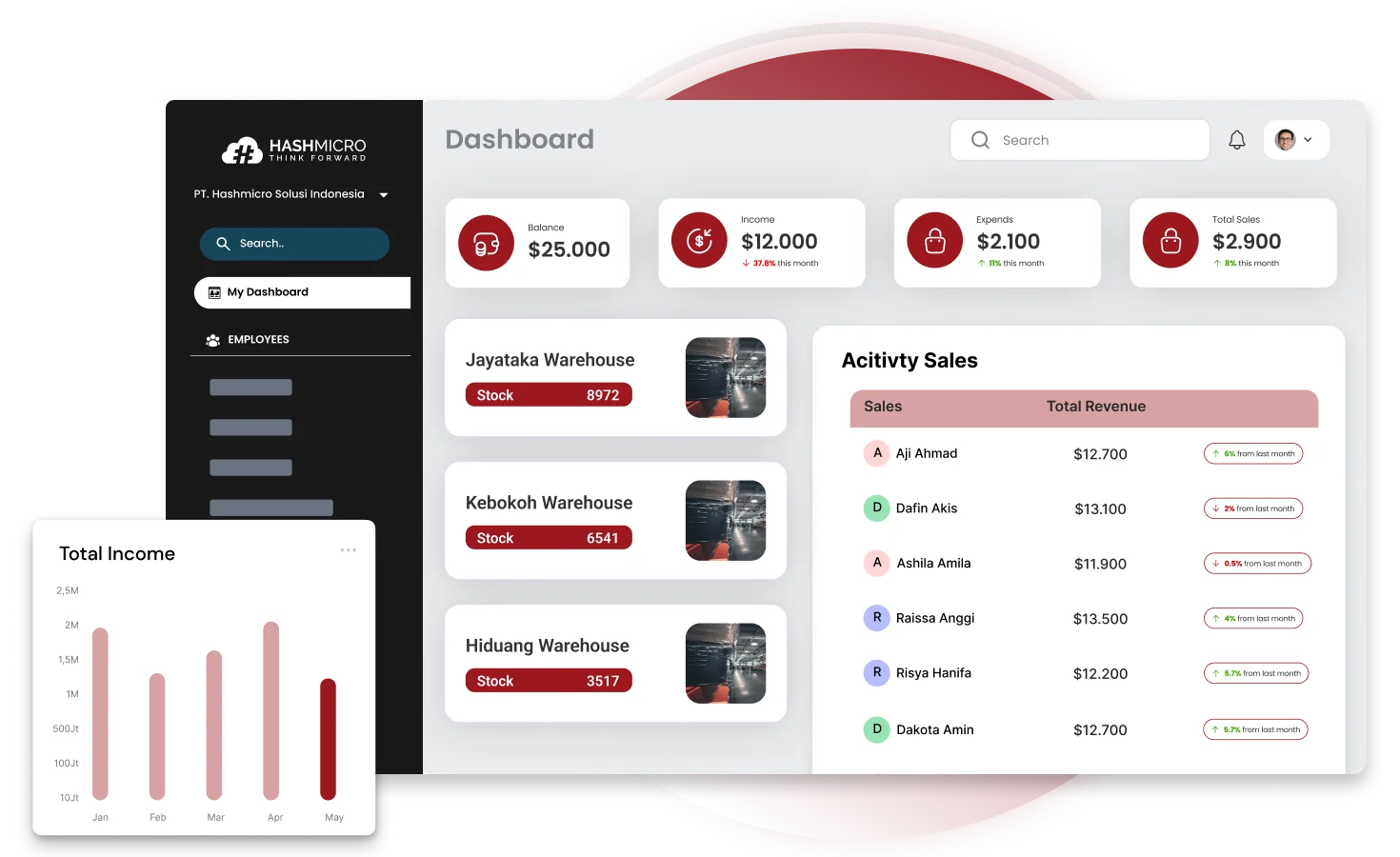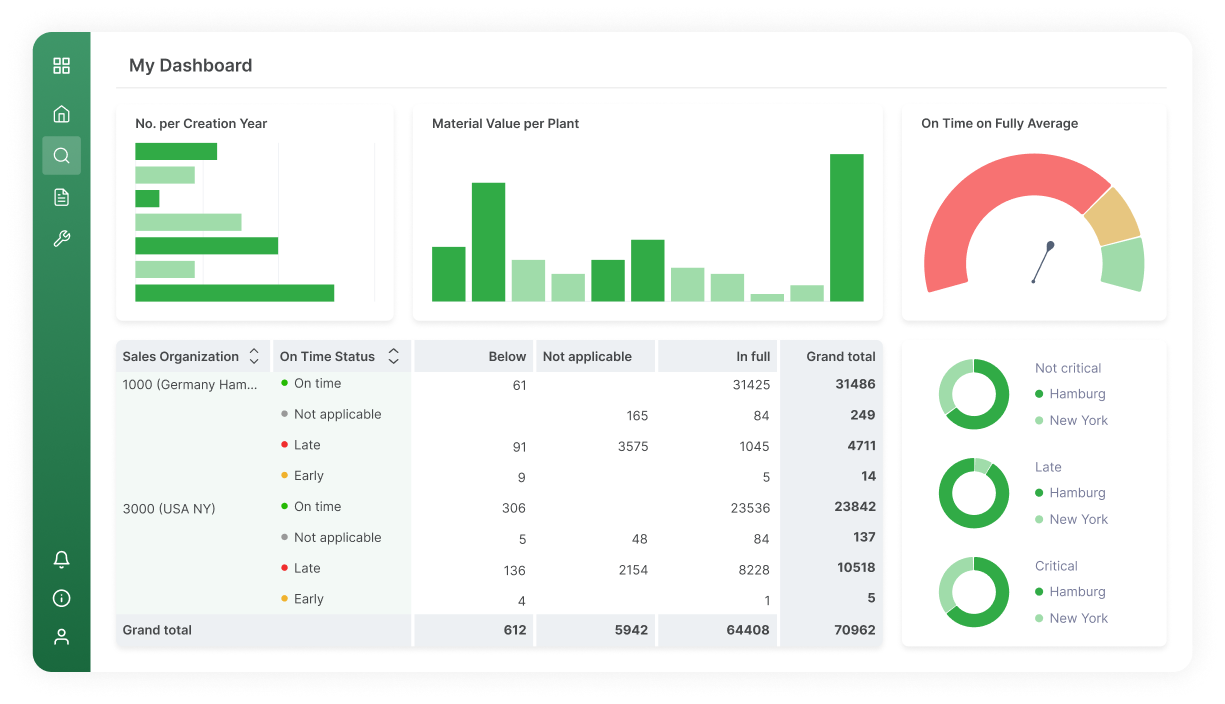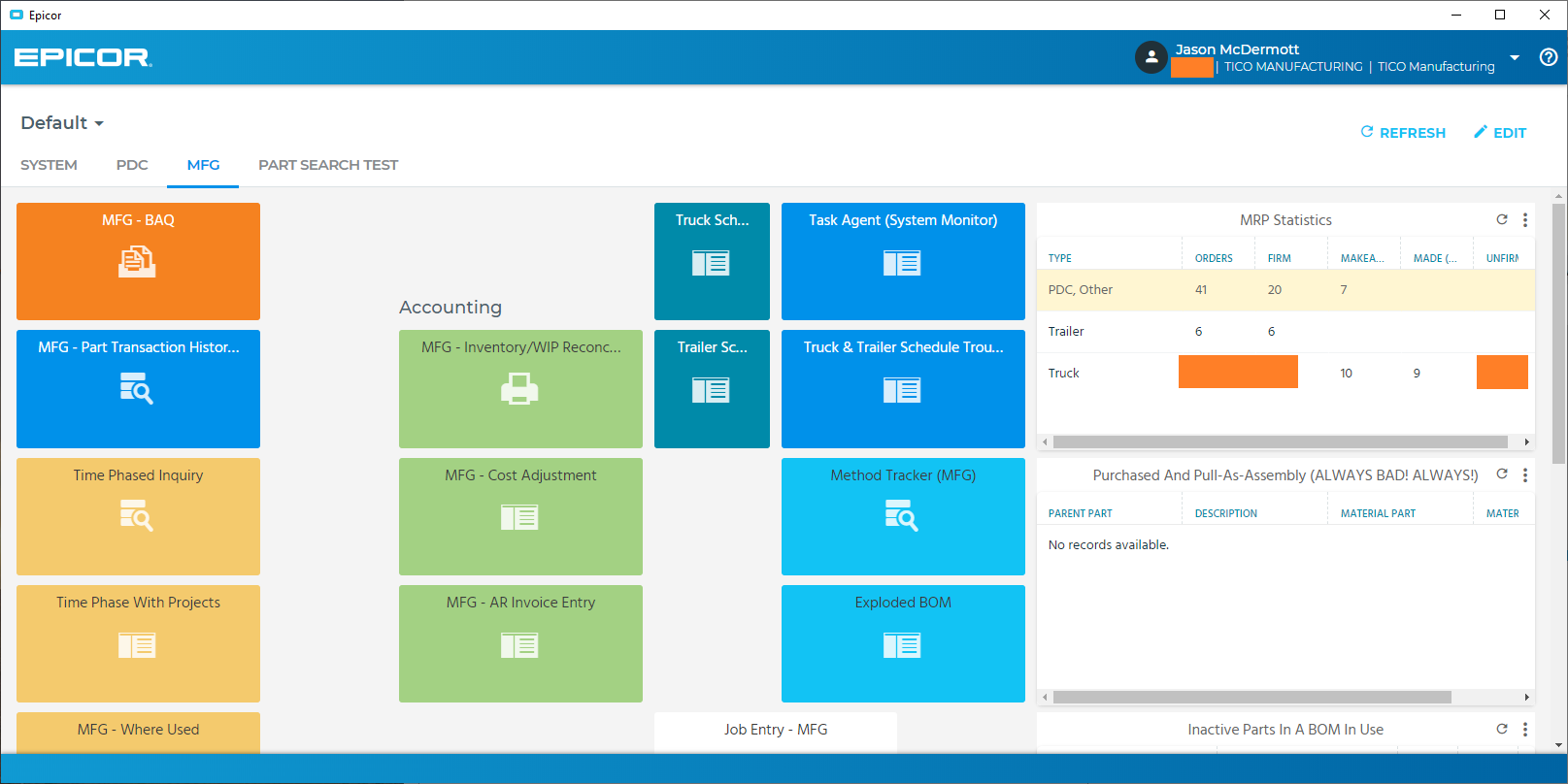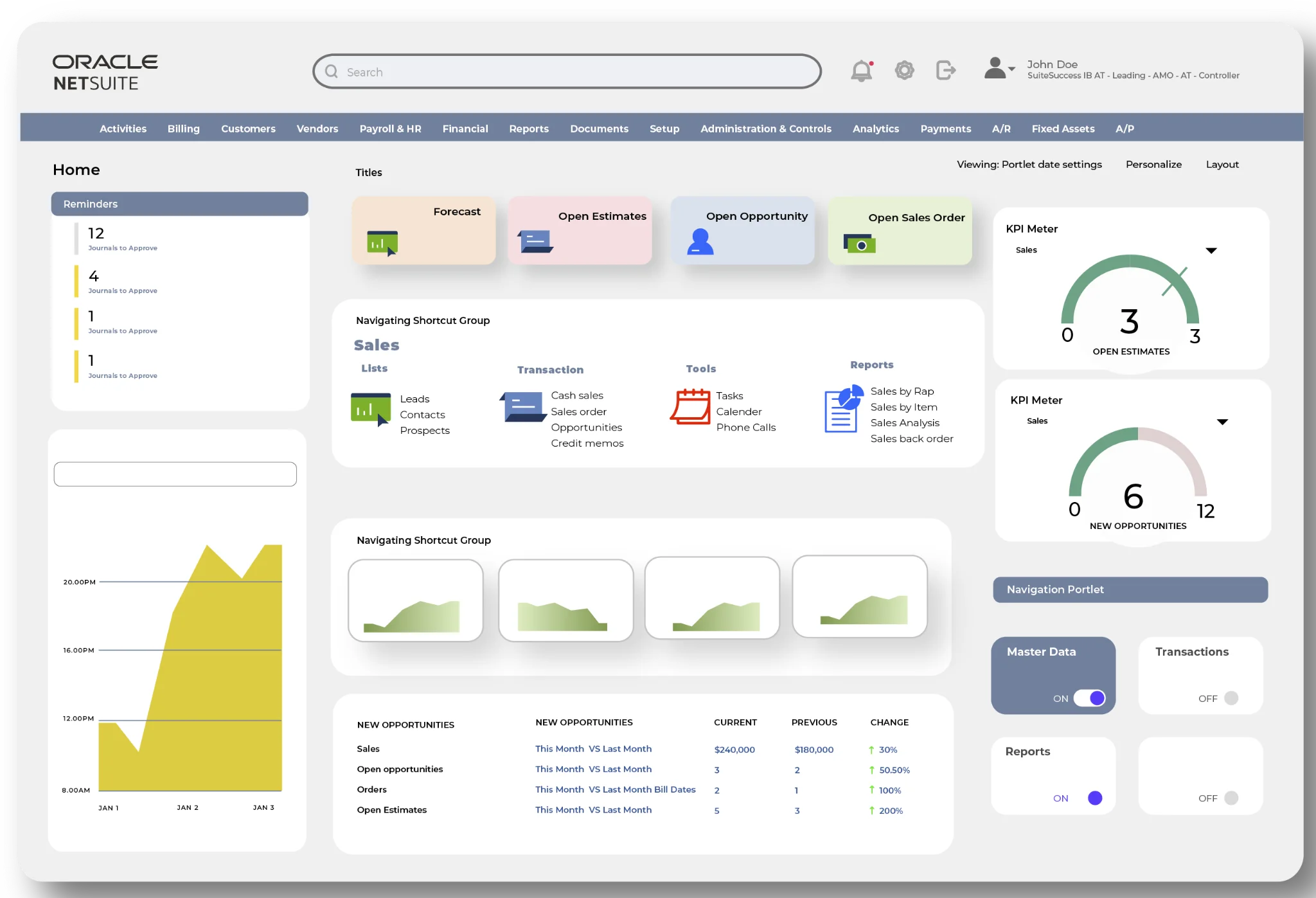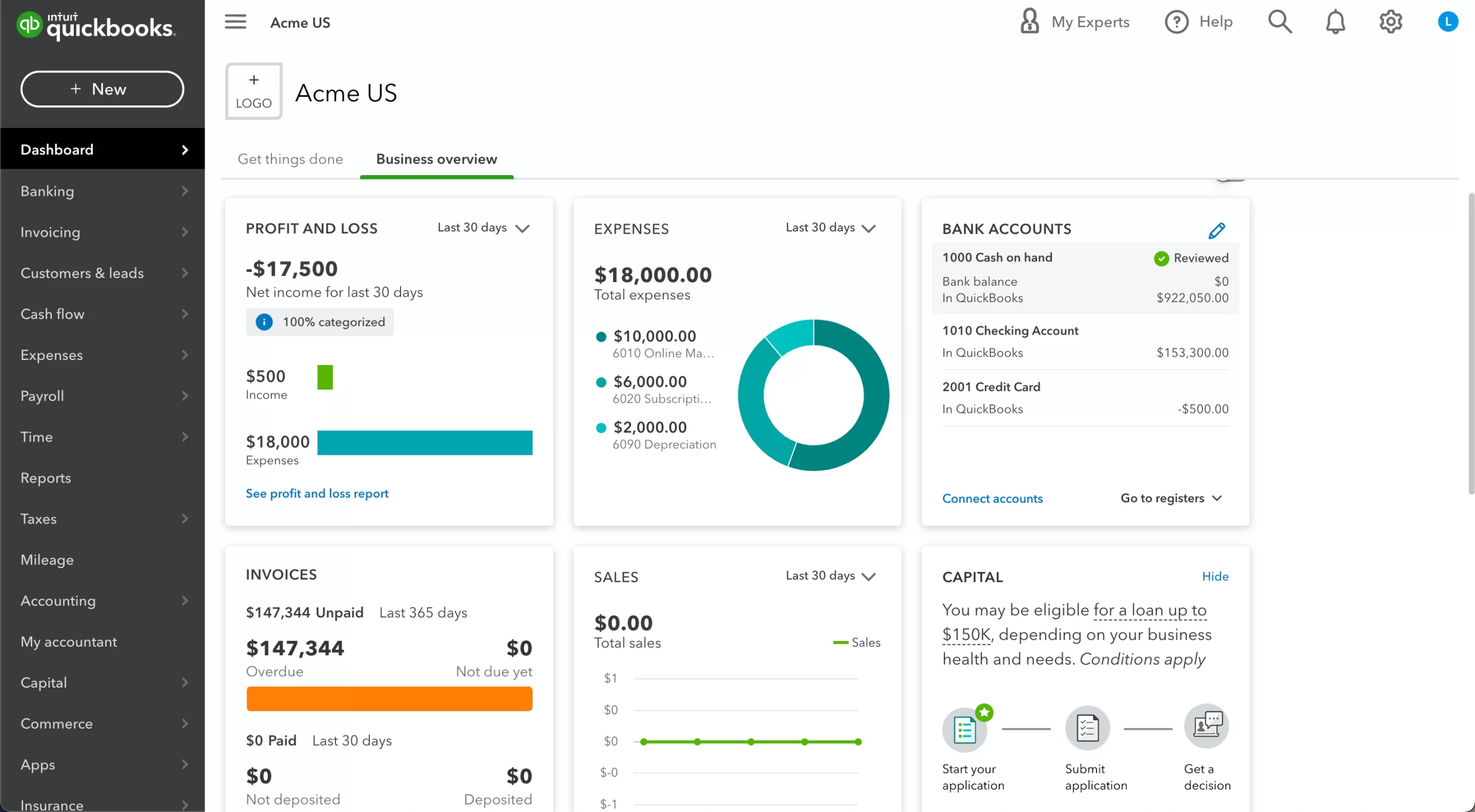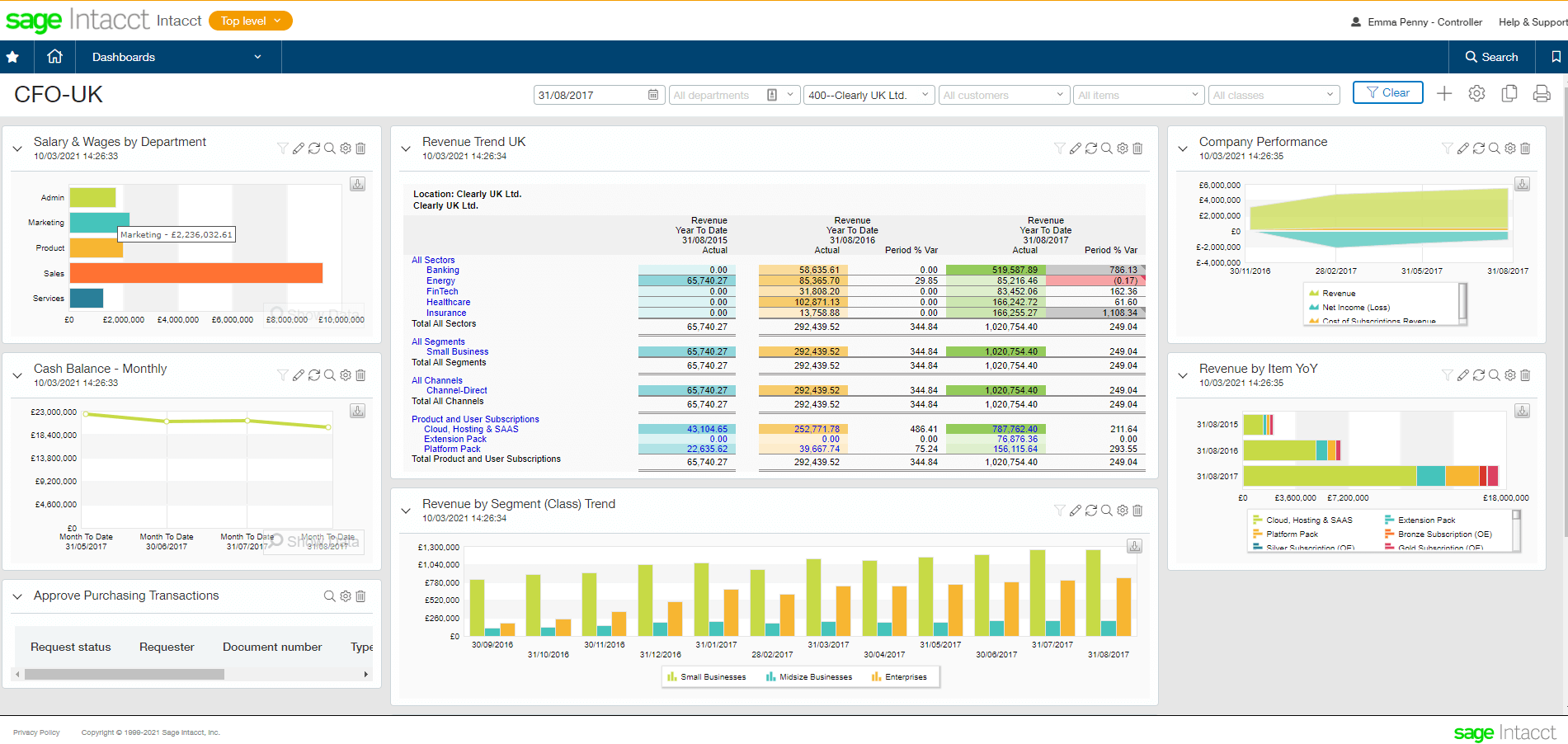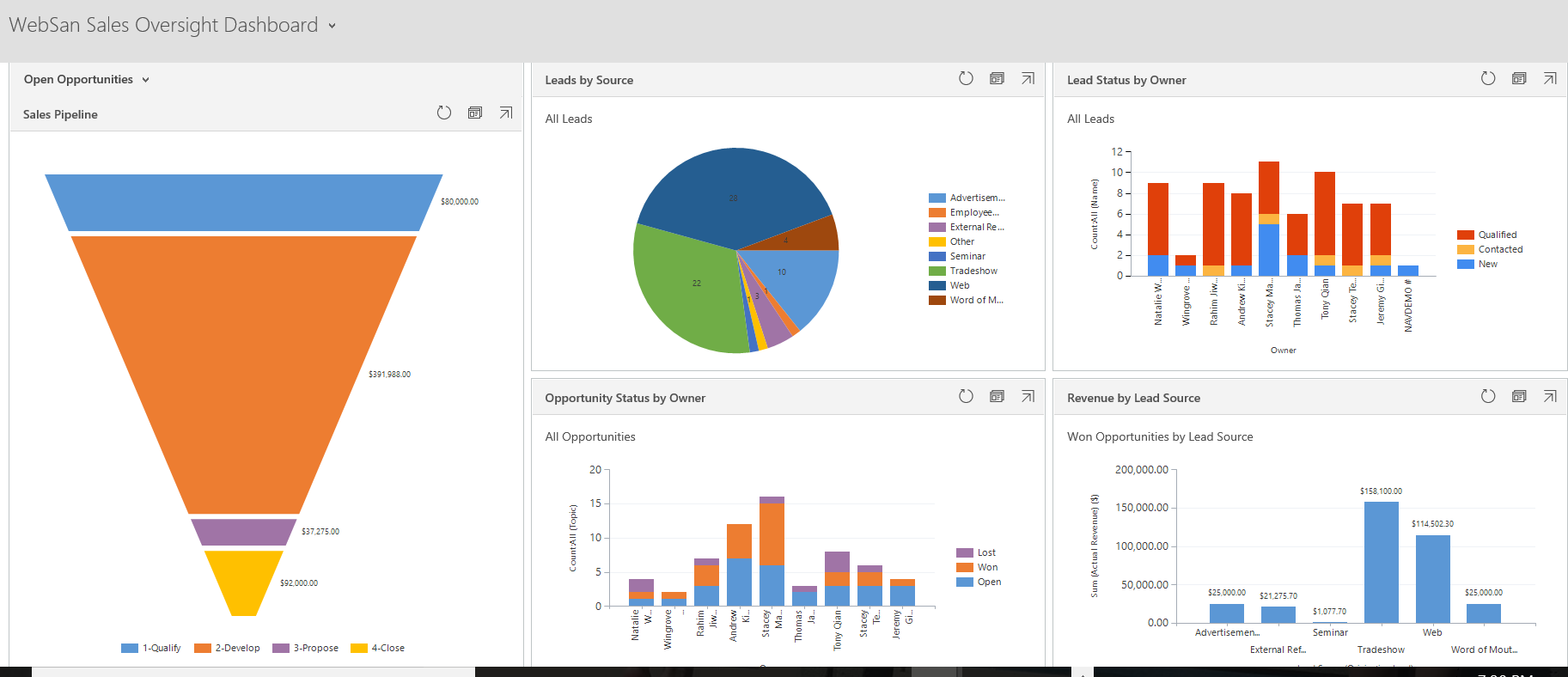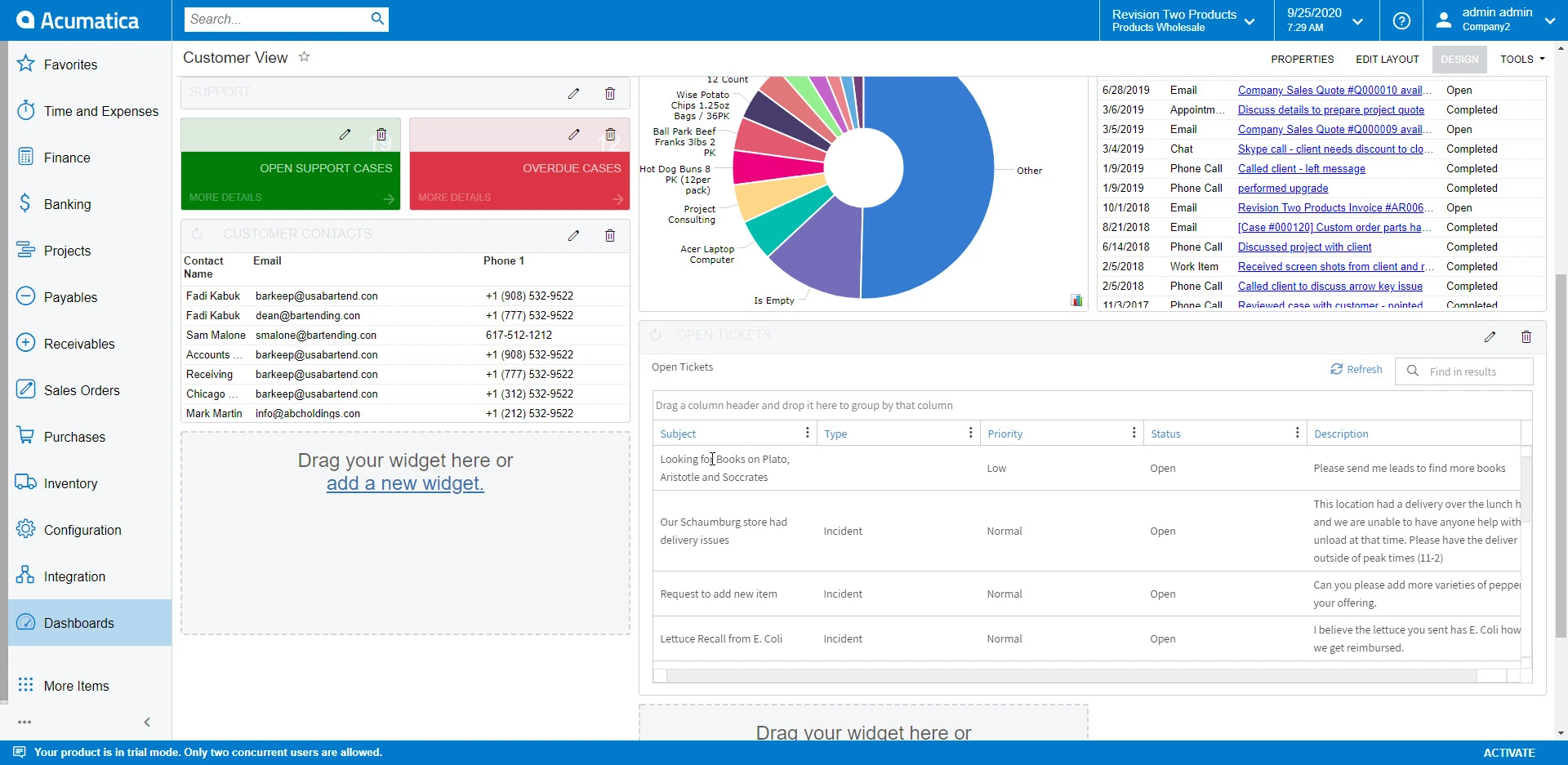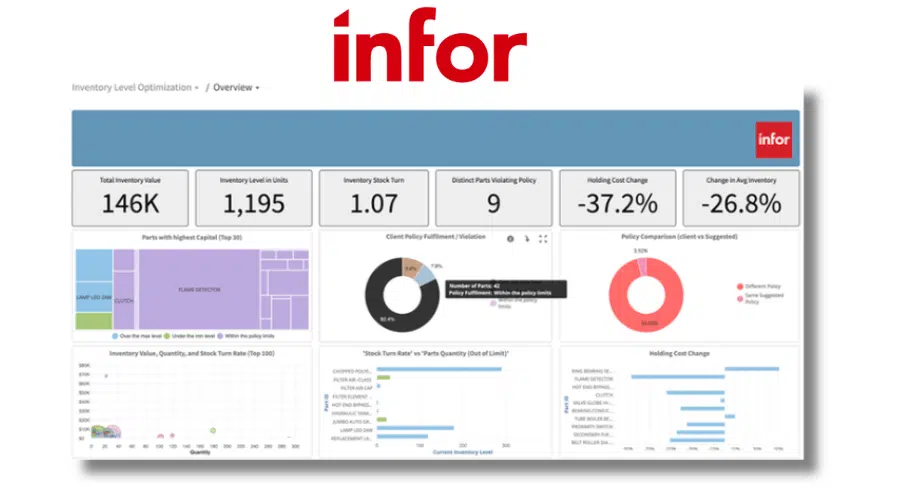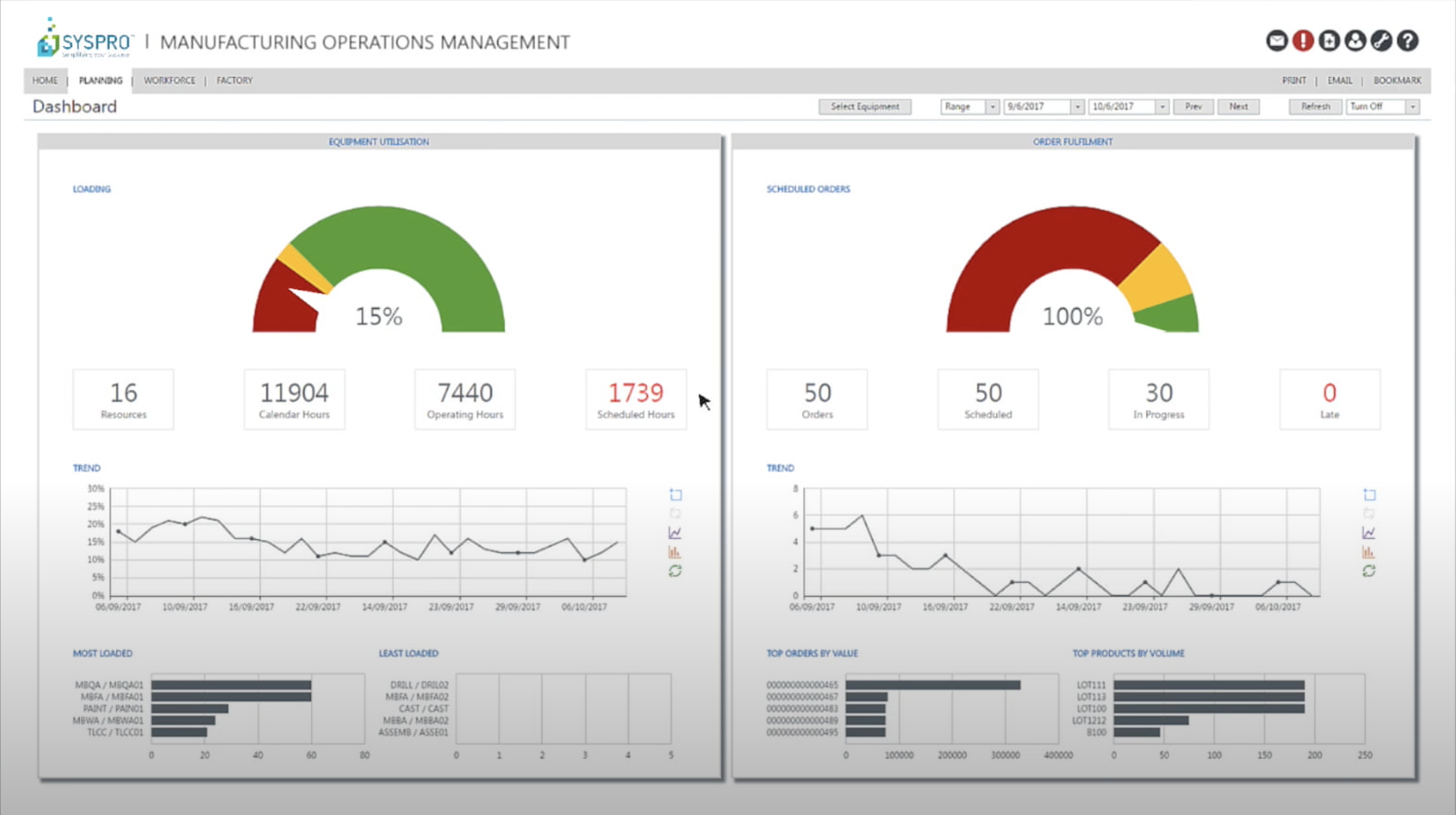Struggling to manage operations, data, and workflows across departments in your business? Without the right tools, processes can become inefficient and growth may stall. A reliable ERP system helps streamline tasks and keeps everything aligned in one integrated platform.
Choosing the right enterprise resource planning (ERP) software for your business can be a challenge. A good ERP system should do more than just store data—it should also improve visibility, automate key processes, and support multiple business functions. Ramco ERP is one of the many platforms available that offer solutions for various industries.
This article explores the key features, pros, and cons of Ramco ERP and introduces 10 top alternatives—including HashMicro ERP Software—to help you find the most suitable ERP system for your business. Mag-iwan at matuklasan kung aling platform ang angkop sa iyong mga pangangailangan pinakamahusay
Key Takeaways
|
Table of Contents
What is Ramco?
Ramco is an enterprise resource planning (ERP) software developed by Ramco Systems that helps businesses manage various operational areas within a single system. It offers integrated solutions across functions such as finance, HR, procurement, and asset performance management.
The software is used in industries like manufacturing, logistics, metal fabrication, and aviation. With its modular structure, Ramco allows businesses to implement specific features that match their operational needs.
Ramco includes tools for automation, reporting, and mobile access. Its functionalities are designed to improve visibility and coordination across departments, although some features may require additional configuration depending on the business process.
Key Features of Ramco
Here are several general features of Ramco ERP to consider when evaluating its suitability for your business operations:
- Modular System: Ramco ERP offers various modules that cover business areas like finance, HR, procurement, and inventory.
- Automation Tools: It includes features to automate routine tasks such as approvals, payroll processing, and data entry.
- Mobile Access: The system can be accessed through mobile devices, allowing users to manage certain functions remotely.
- Reporting Capabilities: Users can generate standard business reports to monitor operations and make informed decisions.
- Industry Support: Ramco provides configurations suited for sectors like manufacturing, logistics, and metal fabrication.
Advantages of Ramco
Ramco ERP offers a range of features aimed at helping businesses manage their core operations more efficiently. Below are some of its commonly recognized benefits:
1. Complex setup and implementation
The implementation of Ramco ERP can be complex, requiring time and expertise, particularly for smaller businesses without dedicated IT resources. The setup process often involves customizing the system to fit specific business needs, which can extend the deployment time. Without proper planning, the setup could be a burden.
2. Steep learning curve
While Ramco offers a range of features, its complexity can make it challenging for users to fully master the system. Training is often required to ensure that employees understand how to use the system effectively. For businesses with limited training resources, this learning curve could be a hurdle in maximizing the system’s potential.
3. Customer support limitations
Some users have experienced delays in receiving responses from Ramco’s customer support team, which can be frustrating in urgent situations. Efficient and timely support is crucial for businesses to maintain smooth operations, especially when dealing with technical issues. Slow support could lead to extended downtime and operational disruptions.
Disadvantages of Ramco
While Ramco ERP provides useful tools for business management, it may not be the right fit for every organization. Below are some key limitations that decision-makers should consider before choosing this ERP system:
1. Complex setup and implementation
While powerful, Ramco can be difficult to implement due to its complexity, especially for smaller businesses that lack dedicated IT teams. The setup process often requires expert technical knowledge and a significant amount of time. For businesses without the resources for a lengthy implementation, this complexity could delay the ERP’s full adoption.
2. Steep learning curve
Ramco’s system is feature-rich, but this can make it challenging for users to learn, particularly if they aren’t familiar with ERP systems. Some users have reported needing substantial time to fully understand how to use all its features. To overcome this, businesses often need extensive training and support to ensure employees can use the system effectively.
3. Customer support limitations
There are reports of delayed response times from Ramco’s customer support team, which can be a problem when urgent issues arise. For businesses that rely on fast problem-solving, these delays can cause disruptions. Quick and efficient support is crucial, especially for businesses where ERP performance directly impacts daily operations.
10 Ramco Alternatives & Competitors in 2026
Choosing the right ERP software is important for improving workflows and managing operations effectively. While Ramco provides various features, some businesses may prefer alternatives with more flexibility or specific capabilities.
Here are 10 top Ramco alternatives in 2026 to help you find the best ERP system based on your industry needs and business goals.
1. HashMicro ERP
HashMicro ERP is a modular ERP software built to streamline operations across inventory, finance, CRM, and HR. Suitable for businesses in industries such as manufacturing, trading, and services, it offers a localized approach to automation with customizable modules that scale with your growth.
Why is HashMicro a top alternative to Ramco? Unlike Ramco, HashMicro offers a cleaner interface with strong local implementation support, especially in Southeast Asia. The system integrates deeply across departments, helping businesses achieve end-to-end process automation without a complex technical setup.
Its ERP is modular, meaning businesses can adopt only the features they need. With dedicated consultation and after-sales service, HashMicro is a flexible and cost-effective solution for businesses looking to streamline daily operations, reduce manual work, and maintain data consistency.
Key Features of HashMicro ERP Software:
- Hashy AI: The built-in Hashy AI assists users by providing instant responses via chatbox. It can guide users through processes, answer operational questions, and recommend actions based on system behavior, boosting productivity with on-demand support.
- Manage Thousands of SKUs: Enhance accuracy in managing thousands of SKUs to avoid input errors, miscalculations, and stock loss. This helps businesses maintain clean and organized inventory records even across multiple outlets.
- Smart Transaction Bookkeeping: Automatically record expenses, costs, and sales transactions while ensuring smooth bank reconciliation. It reduces the need for manual data entry and keeps financial reports up to date.
- Increase Sales Performance: Improve sales team efficiency through easier tracking of prospects, scheduling follow-ups, and forecasting future sales. This results in better client relationships and more closed deals.
- Planned Stock Purchases: Automate stock replenishment processes based on pre-set minimum stock levels to ensure you never run out of critical items. This feature reduces the chances of stockouts or unnecessary overstocking.
- Real-Time Stock Opname: Monitor inventory inflow and outflow in real-time and simplify audit processes through automatic stock availability calculation. It supports transparency and faster stock adjustments.
- Production Cost Control: Track production-related costs, including materials, labor, and defective output, to manage profitability. This is especially useful for manufacturing businesses with complex bill-of-materials.
| Pros | Cons |
|
|
If you want to learn more about how the HashMicro ERP Software can streamline and optimize your business operations, click the banner below to explore the pricing details.
2. SAP ECC
SAP ECC is an older generation enterprise resource planning software that offers core modules for finance, logistics, and human resources. It’s typically used by companies that need a structured system for internal operations.
Why is SAP ECC an alternative to Qashier? SAP ECC can be seen as an alternative to Qashier for businesses seeking a more traditional ERP structure with basic POS-related functions such as inventory and billing integration.
Key features:
- Basic finance and logistics modules
- Centralised data processing
- Integration with legacy systems
| Pros | Cons |
|
|
3. Epicor
Epicor is a cloud-based ERP system that supports various business functions like manufacturing, finance, and inventory. It’s often used by medium to large enterprises needing basic operational support on one platform.
Why is Epicor an alternative to Qashier? Epicor can be considered an alternative to Qashier for businesses that want to manage internal processes in one system, although it is more focused on manufacturing than retail or F&B.
Key features:
- Basic inventory and order management
- Financial and production modules
- Cloud-based data access
| Pros | Cons |
|
|
4. Oracle NetSuite
Oracle NetSuite is an ERP system that provides standard tools for accounting, inventory, and general business management. It is commonly used by growing businesses that require basic operational control across departments.
Why is Oracle NetSuite an alternative to Qashier? Oracle NetSuite can be considered an alternative to Qashier because it offers financial and inventory tools that can support general business needs, though it may not be suited for daily retail operations.
Key features:
- Accounting and inventory tracking
- Customer and sales order management
- Basic business reporting tools
| Pros | Cons |
|
|
5. QuickBooks ERP
QuickBooks ERP is an integrated system designed to help small to mid-sized businesses manage financials, sales, and inventory in a more cohesive manner. It provides tools to simplify accounting, financial reporting, and inventory tracking.
Why is QuickBooks ERP an alternative to Ramco? QuickBooks ERP can be considered an alternative to Ramco as it offers basic ERP functionalities with strong financial management tools, making it a good option for businesses that need simple, effective financial oversight and inventory control.
Key features:
- Financial management and reporting tools
- Inventory tracking and order management
- Integration with QuickBooks accounting software
| Pros | Cons |
|
|
6. Sage Intacct
Sage Intacct is a cloud-based ERP system focused on financial management and accounting. It is widely used by small to mid-sized businesses to streamline their financial operations, including accounting, revenue recognition, and reporting.
Why is Sage Intacct an alternative to Ramco? Sage Intacct is considered an alternative to Ramco due to its strong financial management features, particularly for businesses that require specialized accounting capabilities, such as multi-entity and multi-currency support.
Key features:
- Robust financial reporting and accounting tools
- Automated revenue recognition
- Multi-entity and multi-currency capabilities
| Pros | Cons |
|
|
7. Microsoft Dynamics 365
Microsoft Dynamics 365 is an ERP and CRM system that helps businesses manage their operations and customer relationships on one platform. It’s commonly used by mid-to-large businesses looking for an all-in-one solution.
Why is Microsoft Dynamics 365 an alternative to Ramco? Microsoft Dynamics 365 offers similar functionalities to Ramco but with strong integration with Microsoft tools. It provides basic ERP features with the flexibility to be customized for different business needs.
Key features:
- ERP and CRM integration
- Reporting and analytics tools
- Integration with Microsoft products
| Pros | Cons |
|
|
8. Acumatica
Acumatica is a general ERP platform used by businesses to manage finance, operations, and distribution in a centralized system. It’s typically chosen by companies looking for a flexible ERP that can adapt to various industries.
Why is Acumatica an alternative to Qashier? Acumatica can be seen as an alternative to Qashier for businesses needing broader ERP functions beyond POS, especially for managing inventory, accounting, and operational workflows in a single platform.
Key features:
- Financial and inventory management
- Project accounting and reporting
- Multi-branch and multi-currency support
| Pros | Cons |
|
|
9. Infor ERP
Infor ERP is an enterprise resource planning solution that offers tools for managing finance, supply chain, production, and other core operations. It is typically used by medium to large businesses in industries such as manufacturing and distribution.
Why is Infor ERP an alternative to Qashier? Although Qashier focuses on retail POS, Infor ERP can be considered an alternative for businesses looking to scale beyond point-of-sale and manage broader operations like inventory planning and procurement.
Key features:
- Finance and supply chain management
- Production scheduling and inventory tracking
- Basic CRM and analytics tools
| Pros | Cons |
|
|
10. SYSPRO
SYSPRO is an enterprise resource planning (ERP) software mainly designed for manufacturing and distribution companies. It provides tools for managing operations such as inventory, production planning, and financials.
Why is SYSPRO an alternative to Qashier? SYSPRO can be considered an alternative to Qashier for businesses that need more structured back-end operations, especially in production and supply chain management, beyond just retail or point-of-sale activities.
Key features:
- Inventory and warehouse management
- Financial and cost accounting
- Production and material planning
| Pros | Cons |
|
|
Tips for Choosing the Best ERP Software
Selecting the right ERP (Enterprise Resource Planning) software is a strategic decision that influences how your organization handles day-to-day operations, data visibility, and long-term growth. With a variety of solutions in the market, businesses must carefully evaluate several aspects before making a commitment. Below are key tips to guide your ERP software selection:
1. Understand your business processes
Start by identifying the core processes that need improvement—whether it’s inventory management, procurement, accounting, or customer service. A good ERP system should align with your operational workflows and provide functionalities that address your most pressing pain points.
2. Check integration compatibility
The ERP system should be compatible with your existing tools, such as HR systems, CRM platforms, point-of-sale systems, or supply chain management software. Strong integration capabilities help avoid data silos and allow for seamless information sharing across departments.
3. Evaluate ease of use
Choose an ERP solution with a user-friendly interface. The system should be accessible for employees at different levels, minimizing the need for extensive training and reducing the risk of user errors. A simple interface also helps increase adoption rates across teams.
4. Assess vendor support
Reliable technical support is crucial, particularly during the implementation phase and system updates. Ensure the ERP vendor provides responsive assistance via multiple channels and has a clear onboarding and support process to help your team get up to speed quickly.
5. Consider scalability and flexibility
An ERP system should adapt to your future business needs. Look for software that supports additional users, multi-branch operations, or new modules as your company expands. A scalable ERP allows you to grow without needing to switch platforms down the line.
Conclusion
A reliable ERP system plays a vital role in helping businesses manage core operations such as finance, inventory, procurement, and human resources. With the right software, companies can improve efficiency, maintain accurate records, and support strategic decision-making across all departments.
HashMicro ERP stands out as one of the best ERP solutions available. It offers modular and AI-based features, strong localization, and integration capabilities suitable for a wide range of industries. Whether you are in retail, manufacturing, or distribution, HashMicro provides a centralized platform to streamline operations and increase productivity.
Ready to transform your business with a smarter ERP solution in the Philippines? Try our free demo and discover how HashMicro can help automate your workflow and suportahan ang iyong paglago ng negosyo na may kakayahang makita at kontrol ng end-to-end.
Question About Ramco
-
What is Ramco used for?
Ramco is an ERP software solution used by businesses to manage operations such as finance, HR, supply chain, and enterprise asset management. It offers industry-specific modules, including aviation, logistics, and manufacturing. However, businesses looking for a more flexible and user-friendly ERP platform often turn to HashMicro, which provides customizable solutions tailored to each business type.
-
Is Ramco a good company?
Ramco Systems is recognized in the ERP industry and has a global presence with a focus on enterprise software. While it serves several sectors effectively, users sometimes find its interface and customization options less intuitive. HashMicro, by comparison, is praised for its simplicity, quick implementation, and strong local support in Southeast Asia.
-
What is Ramco in aviation?
Ramco Aviation is a specialized ERP module designed for the aviation industry. It covers maintenance, repair, operations (MRO), and fleet management. While it’s tailored for aviation, it may be complex for non-enterprise users. HashMicro, on the other hand, offers broader industry adaptability with modular systems that are easier to configure and scale, making it a top alternative for various sectors.
-
What does Ramco Group do?
Ramco Group consists of several businesses with interests in software (Ramco Systems), engineering, packaging, and manufacturing. Its ERP division offers cloud-based enterprise software. For businesses that prioritize seamless integration, local compliance, and full support in industries like retail, F&B, and distribution, HashMicro ERP often emerges as the more robust and adaptable option.










